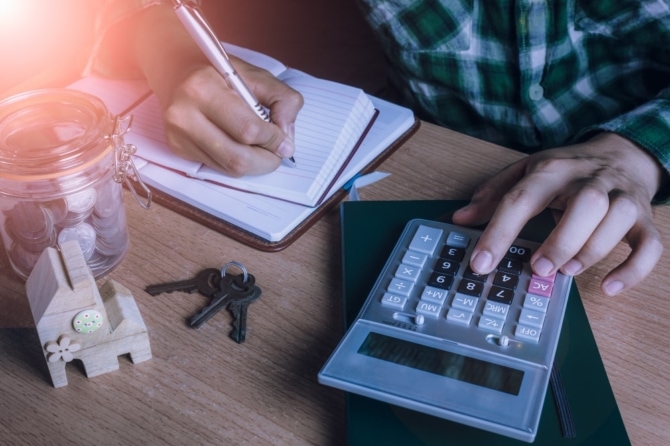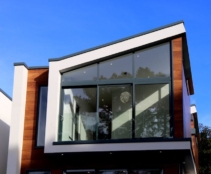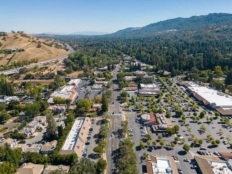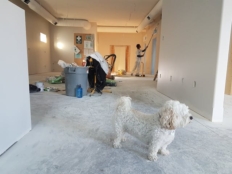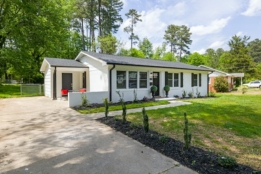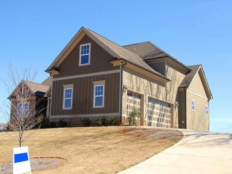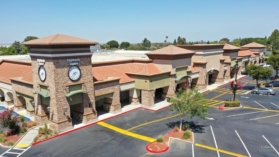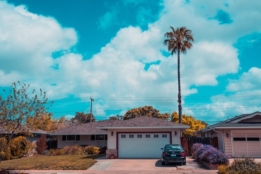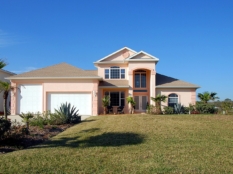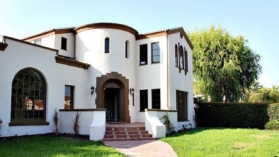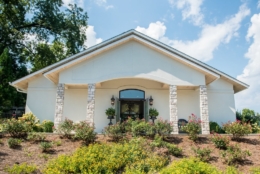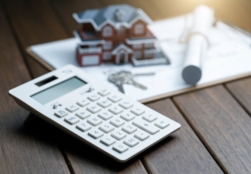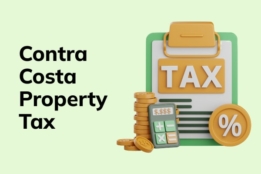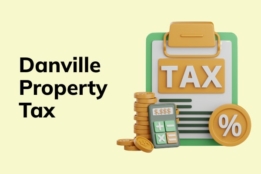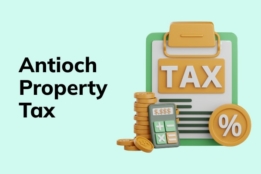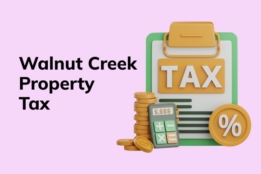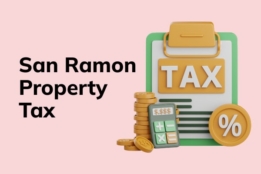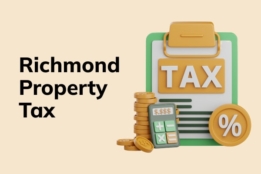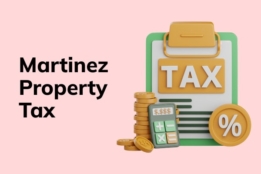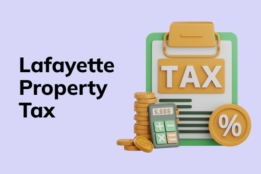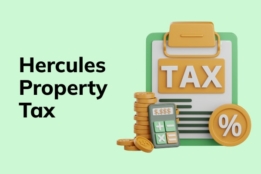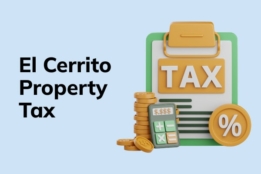Table of content
There are often slight variations in property tax rates from one neighborhood to another. The average property tax rate in Concord is currently 1.11% at the time of writing, which is similar to the average rate throughout Contra Costa. When considering a move, it is important to check the specific rates at the address you plan to move to—we can assist you with this if needed.
Property tax rates are based on the California base rate of 1%, unless there are any special or direct assessments in place. Without any special/direct assessments, property taxes cannot exceed this threshold. Local authorities consider several factors when determining property tax rates, including:
- The funding required to support local projects
- Average property values in the area
- The income levels of citizens
Property tax rates are always determined with fairness in mind.
There may be options available to reduce your property tax liability, which we will discuss later. As mentioned, property tax rates in Concord are close to the Contra Costa average, and they are relatively low compared to the national average in the United States. Due to the high value of real estate in Concord, the property tax rates do not need to be high to generate the necessary funding for local projects. Make sure to thoroughly research local rates to find the right property for you—we are here to help with this.

The Method For Calculating Property Taxes In Concord?
To calculate property tax in Concord, you will need two key pieces of information:
- The assessed market value of the property in question.
- The property tax rate that applies to the address.
With these numbers at hand, the calculation is straightforward. Start by dividing the value of the home by 100 to get the ad valorem tax rate of 1%. Then, multiply this result by the actual property tax rate for the address. The answer will give you the amount of tax due for a single year. Keep in mind that this amount may change over time but applies to the current tax year.
The assessed value of a property is typically based on its most recent sale price for tax purposes. This value cannot increase by more than 2% in a single year, unless the property changes ownership. Accurate market values are crucial for property tax calculations, which is why many people choose to challenge their assessed value to reduce their tax liability.
When appraising a property, two primary factors come into play:
- The property’s unique features.
- The sale prices of similar properties in the local area.
Appraisers examine recent sales activity involving comparable properties and use their expertise to assess specific features such as insulation and yard space. The market value is determined based on their professional judgment.
Let’s consider an example. Suppose you are interested in a townhouse with 4 bedrooms and a backyard pool. The home is valued at $760,000, and the property tax rate is 1.11%. The calculation would be as follows:
- Divide the appraised value by 100 (760,000 ÷ 100 = 7,600).
- Multiply the result by the property tax rate (7,600 x 1.11 = 8,436).
Therefore, the annual property tax due for this Concord property would be $8,436.
How Are Concord Property Taxes Paid?
In addition to making timely payments, it is your responsibility to ensure that you receive your bill for Concord property tax. If you fail to make your payment by the deadline due to not receiving your bill, you will still be subject to penalties.
In Concord, property taxes are collected by the Contra Costa Treasurer-Tax Collector. There are several methods available for paying your property tax in Concord:
- Pay by mail: You can use the return envelope provided in your property tax bill pack and pay by check using this method.
- Pay in person: You will need to visit the Finance Building in Martinez, CA to pay in person. Walk-in hours are from 8 am to 5 pm, Monday through Friday.
- Pay by phone: To make a payment over the phone, call 925-608-9500. An automated voice response system will guide you through the process, and you can pay by e-check, credit card, or debit card. Service charges apply for card payments.
- Pay online: An online portal is available for payment, where you can pay by e-check, debit card, or credit card. Once again, service fees apply when paying by card.
The most important consideration is to make your payment before the deadline to avoid penalty charges. Choose the payment method that is most convenient for you.
For card payments, there is a service fee of 2.5%, with a minimum charge of $3.50. In the case of e-checks, any rejected payment will incur a check return fee of $85.
When Must I Pay My Concord Property Tax?
Concord property tax bills are typically sent out between September and October, although some individuals may not receive theirs until November. If you have not received your bill by November 10, please contact the Tax Collector’s Office to request an update. Online access to property tax bills becomes available in October, and you will need your Assessor’s Parcel Number (APN) to access them.
The annual property tax bill consists of two installments:
- Installment 1 is due on November 1, with a deadline of December 10
- Installment 2 is due on February 1, and the payment deadline is April 10
Some people choose to make the entire payment on December 10.
Missing any payment deadlines will result in penalty fees. If you anticipate difficulties meeting a deadline, you may be eligible for a property tax postponement. However, these postponements have limited availability, so it is advisable to apply early to increase your chances of success. Remember that property tax postponements only defer the due dates; you will still need to pay the full amount eventually.
What Happens If You Miss The Payment Deadline?
Penalty fees apply if you fail to make your Concord property tax payment by the deadline.
- Missing the first deadline will result in a penalty of 10% added to the remaining amount of your first installment.
- Missing the second deadline incurs a similar 10% fee, along with a $20 administrative charge.
These are the initial penalties for non-payment. If June 30 arrives and you still haven’t paid your outstanding balance, you will become tax-defaulted. At this point, interest will be added to your account at a rate of 1.5% per month. This situation can continue for a maximum of 5 years, after which your property may be at risk of repossession.
If late payment is an issue for you, it’s crucial to find a way to pay your outstanding amount as soon as possible. A redemption installment plan could be a suitable solution, enabling you to gradually repay your debt. The longer your Concord property tax remains unpaid, the more your debt will continue to grow.
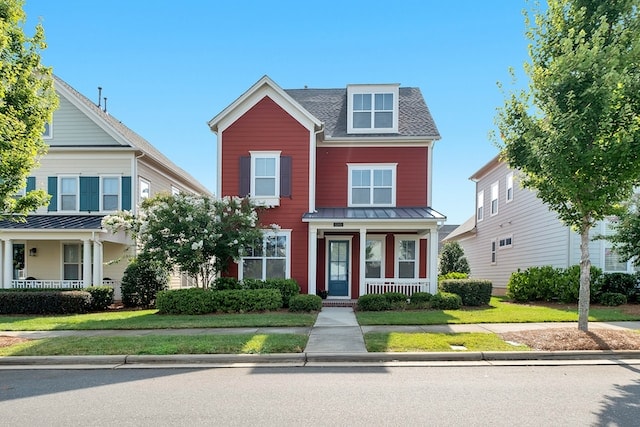
Can Your Tax Liability Be Reduced?
If you want to reduce your Concord property tax, there are several avenues to explore:
- Apply for a special exemption.
- Challenge the appraised market value of your home.
- Seek a homeowner’s property tax exemption.
Challenging the assessed property value is a common approach. The process begins by submitting a request to the assessor. They will conduct a Proposition 8 Review, evaluating the current value of your home specifically for tax purposes. If you are unsatisfied with the outcome, you have a 60-day window to appeal between July 2 and November 30. It is advisable to pursue this action only if you have a strong case for success.
Regarding special exemptions, you must meet the qualifying criteria for a specific exemption. Contact the Assessor’s Office if you believe you are eligible for an exemption applicable to a particular individual or group. Some options include:
- Church exemption
- Proposition 19
- Seniors exemption
- Veterans exemption
These exemptions have strict criteria as they are designed to support the specific groups they target. You can seek basic guidance from us or reach out to the Contra Costa County Assessor’s Office. It is them who will make the final decision on your application.
What Is Homeowners Property Tax Exemption?
Many Concord property tax payers opt to apply for the homeowners property tax exemption to lower their tax liability. If you are the owner-occupier of your property in Concord and it serves as your main residence, you likely qualify for this exemption. Essentially, it works by reducing the appraised market value of your home, with a maximum reduction of $7,000. This reduction translates to a $70 decrease in your Concord property tax bill.
It’s important to note that this exemption is specifically for owner-occupiers, and it does not apply to landlords or rental properties. Typically, the necessary paperwork is provided to new property owners upon purchase. If you did not receive the paperwork, there’s no need to panic; you can request it at any time.
Frequently Asked Questions
How Much Are Property Taxes In Concord?
The average Concord property tax rate is 1.11%. This will vary somewhat between different locales so check first.
How To Pay Your Concord Property Taxes
Your property tax bill is usually paid by cash, check or debit/credit card. You can make the payment in person, over the phone, online or by mail, and it is made to the Treasurer-Tax Collector.
What Happens If You Miss The Payment Deadline?
Missed deadlines result in a 10% penalty charge. If the balance is still not paid, further penalties can apply and it can even result in legal action being taken.
